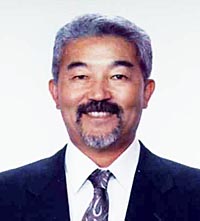A people's grand jury in Texas has accomplished something politicians in Congress repeatedly tried but failed to do: On November 17, 2008, a South Texas criminal grand jury indicted Vice President Dick Cheney for a conflict of interest pertaining to his investment in a firm that runs federal detention centers.
This "direct conflict of interest" casts a great shadow over his political influence on federal contracts awarded to the prison company. Former Attorney General Alberto Gonzales was also indicted on charges that he attempted to stop the investigation into abuses at the federal detention center in Texas.
This is a tremendous triumph for people in Texas who have been outraged by politicians who egregiously pursue their self-interest regardless of questionable criminal and moral implications. This is also a great victory for a county prosecutor who investigated the case and brought indictments against prominent politicians. Nevertheless, on December 1, a politically motivated county judge decided to dismiss the indictments returned by the grand jury.
The Fifth Amendment requires that charges for all capital and "infamous" crimes be brought by an indictment returned by a grand jury. However, the Supreme Court has held that this part of the Fifth Amendment is not binding on individual states, which can independently use grand juries or not, as they wish.
The root of all-citizen juries has been traced back to ancient Greece. They were employed in England and their civil watchdog functions were transplanted to the American colonies, where jurors publicly criticized officials for failing to maintain roads, bridges, public buildings, and jails; they issued reports compelling public officials to correct perceived wrongs, inefficiencies, and injustices. Grand juries exposed governmental abuses, determined tax rates, and suggested price controls for essential goods.
By the late 19th century, however, a strong movement to abolish the grand jury had emerged in many states. Opponents asserted that the system had outlived its original purpose, and many states discontinued its use. One exception was California, where a proposal to abolish grand jury inquests was rejected in 1902, mainly due to popular support for the exposure of municipal corruption, governmental abuse, and other wrongdoing.
Today, California continues to rely on the civil grand jury to oversee local governments. When the Sacramento County Grand Jury released its annual report last May, for example, the document included allegations of over-billing, credit card abuses, questionable travel expenses, and a kickback scheme involving a library director.
In April, the San Diego County Grand Jury described the dilapidated condition of a local jail, where floors had caved in and walls were rotting. Earlier the same month, the Kern County Grand Jury recommended relocating a morgue because the stench of dead bodies was hurting a nearby business, whose customers complained of "smelling rotten garbage or dirty diapers."
In California, grand juries have a long and honorable record of conducting their own independent civil investigations that expose corruption, mismanagement, and inefficiencies in local government. We need a similarly empowered civil grand jury at the federal level to investigate allegations of government wrongdoing that reach beyond the limited judicial boundaries of state jurisdictions.
In contrast to the federal criminal grand jury--the body that famously indicted I. Lewis "Scooter" Libby--a federal civil grand jury would watch over the operations of the federal government. Unlike criminal grand juries, which examine evidence compiled by prosecutors following criminal investigations, civil grand juries examine all aspects of government.
Impaneled annually with citizen jurors, federal civil grand juries could examine governmental institutions within each of several jurisdictions, including, for instance, regional offices of the FBI, the Drug Enforcement Administration, and the Veterans Affairs Department.
The establishment of a permanent, independent federal civil grand jury system would eliminate political constraints that might come from the executive, legislative, or even judicial branches of government. Jurors would be empowered to interview anyone germane to an investigation; to audit operations, accounts, records, and financial expenditures of all federal agencies; and to inspect government facilities. The jury's power, including the right to subpoena, would create a fertile dynamic for consensus and change.
As the Bush presidency winds down, there have been numerous calls to review allegations of unethical and possibly criminal misconduct in Washington, D.C.
Our country is now faced with widespread concern about the legality of Bush administration policies on the domestic and international fronts, including the reported mismanagement of billions of dollars in war funding, the extrajudicial transfer of suspected terrorists to foreign detention centers, torture of enemy combatants in secret sites around the world, and the mistreatment of illegal immigrants at holding centers.
Already, Congress has held numerous committee hearings to investigate these allegations. But Congressional commissions rarely get to the root of the problems, and scrutiny by political elites has miserably failed to deter agencies and departments of the federal government from engaging in egregious and possibly illegal activities.
A federal civil grand jury would make an important contribution to our nation's system of checks and balances.
#####
Hiroshi Fukurai is a professor of sociology and an expert on global jury systems; Richard Krooth, a legal scholar, has practiced law and taught sociology and criminology at several universities, including UC Riverside. They are co-authors of Race in the Jury Box: Affirmative Action in Jury Selection.



